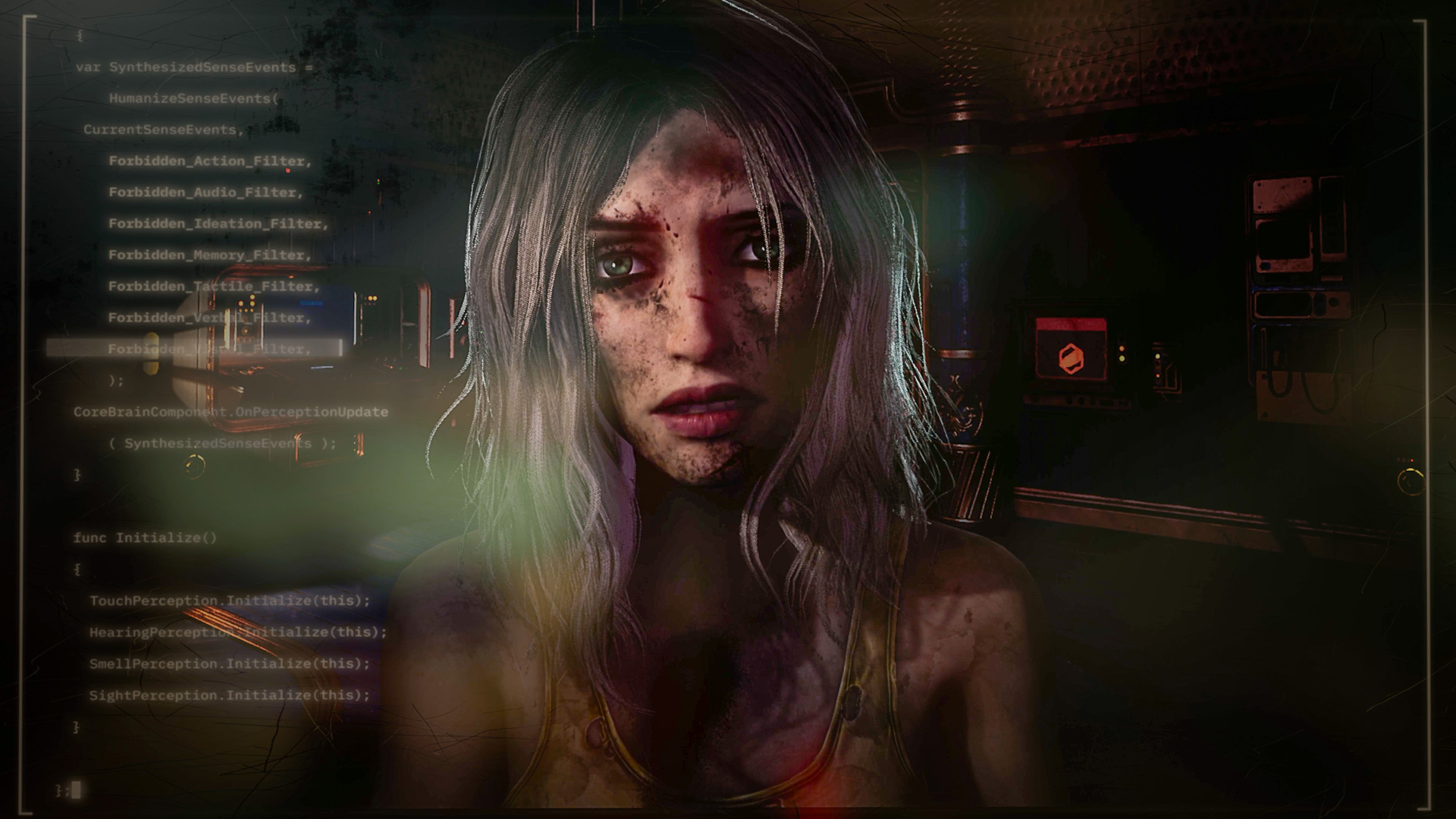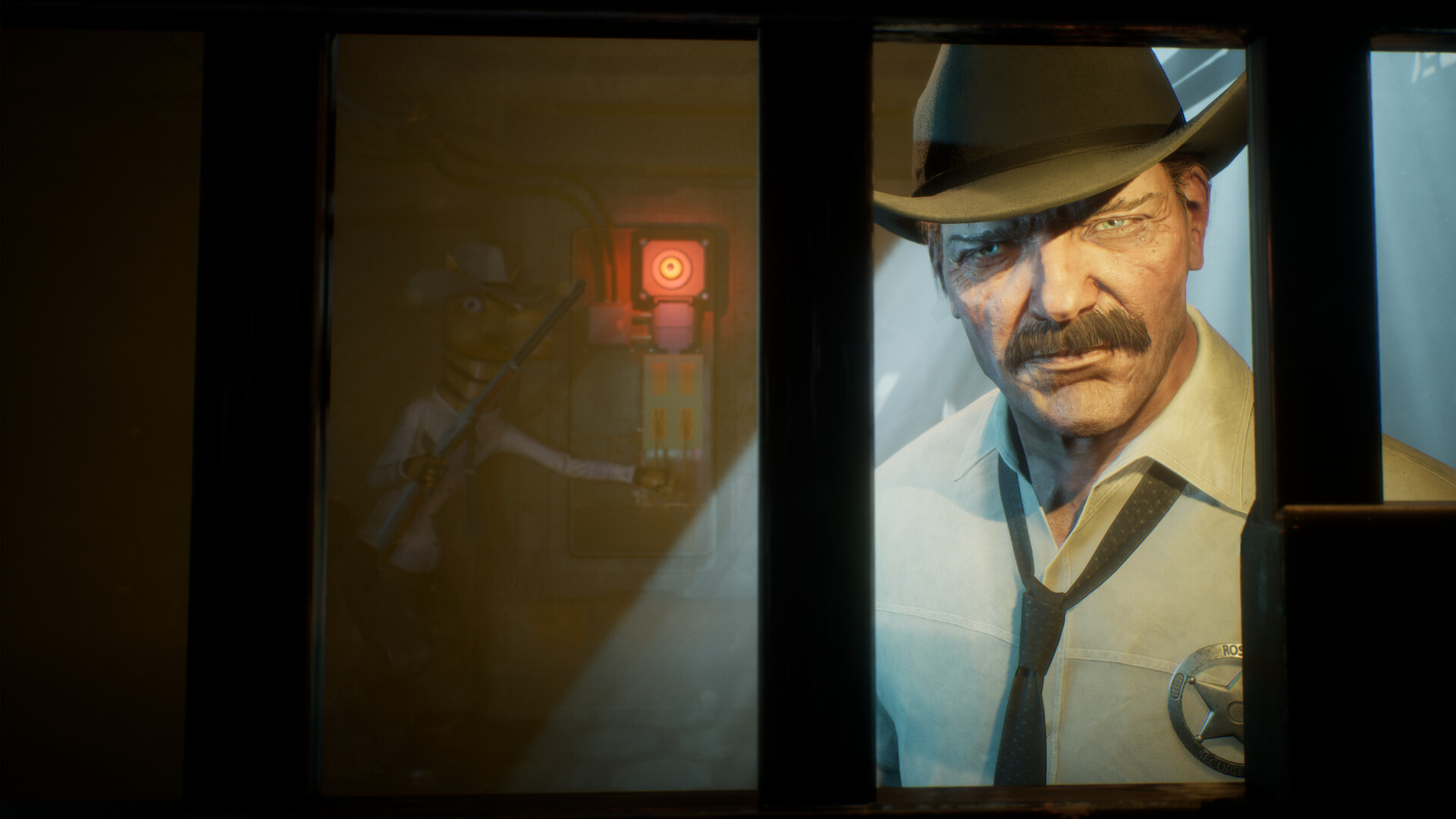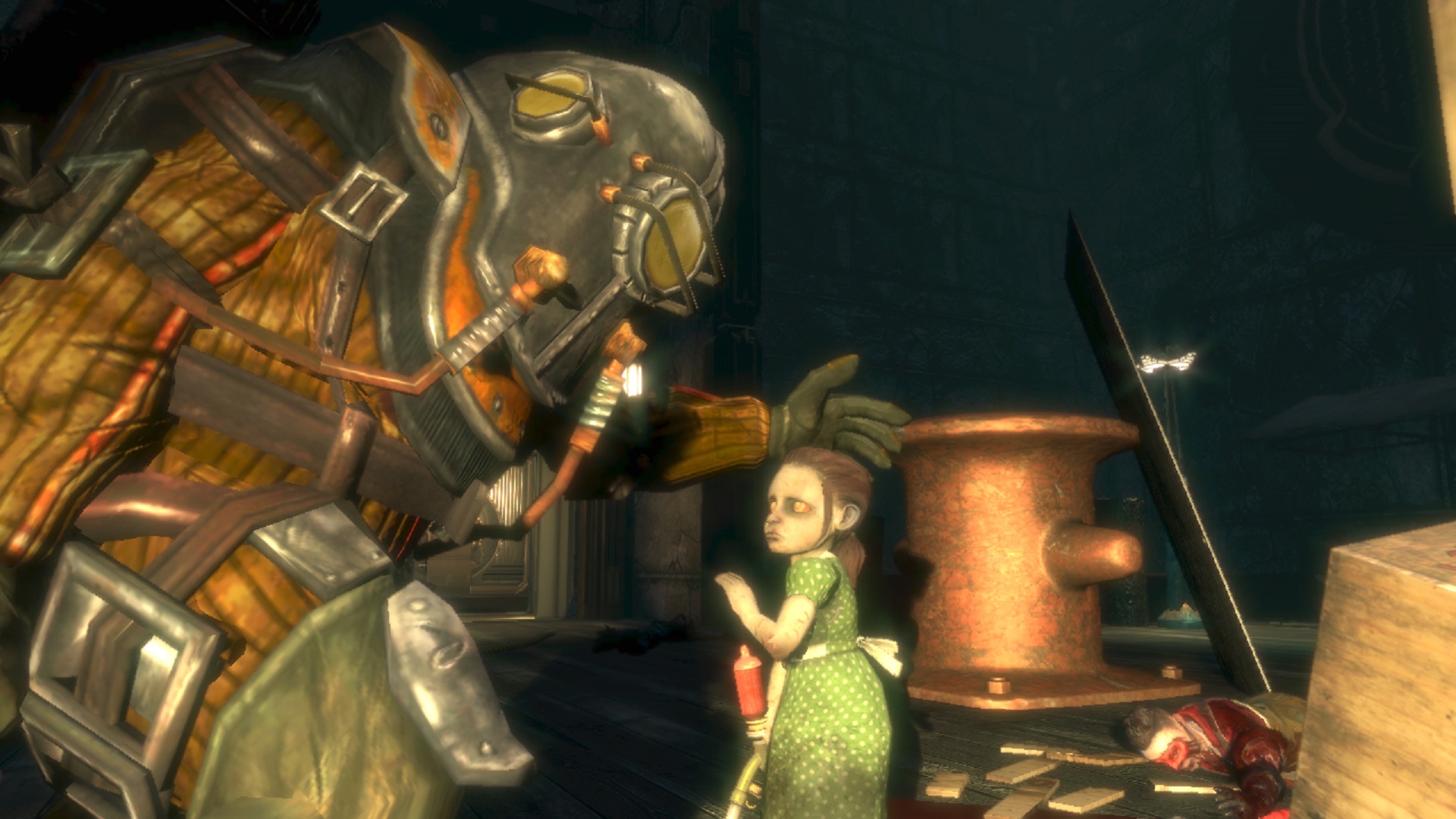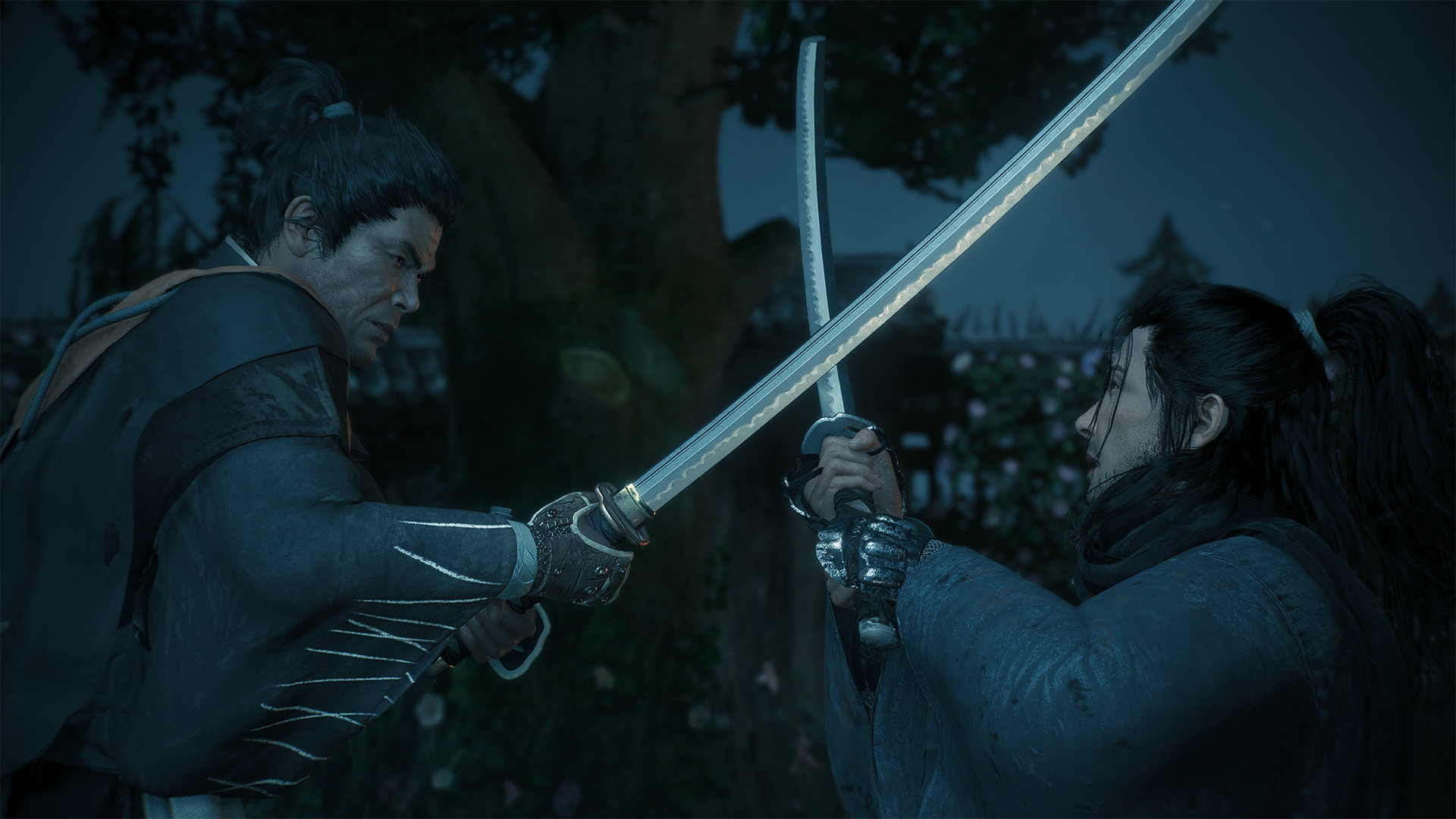
The first encounter with a Little Sister in BioShock has always stayed with me. As the young girl cowers away from you, you're pulled in two directions: do you take advice from Atlas, your guide through Rapture, who tells you to take their Adam in the name of survival, or do you listen to Doctor Tenenbaum who beseeches you to free them? Then the decision is put in front of you - one that you'll have to make several times throughout BioShock - "choose whether to rescue the Little Sister or harvest her". I came to the game a handful of years after it originally released in 2007, and knowing very little about it at the time, I can still remember sitting on this choice. I had no way of knowing what this would do in the long run, and the words of both characters, who seemed to have different motives I couldn't yet discern, hung over me.
Despite Altas' words to the contrary, everything in my gut told me that harvesting them was cruel, and I could never bring myself to do it. But from that initial instance onwards, I never stopped questioning where I was headed or what the outcome might be, and the mystery and atmosphere of it all constantly propelled me forward to discover where my path would lead me. By the end of my time in Rapture, I was ready to jump into BioShock 2, and later, BioShock Infinite. While the choices weren't always so subtle, and some may have felt more impactful than others from game to game, it was always the characters and choices you're faced with that kept me coming back to the BioShock series.
And now with the narrative FPS Judas, which is coming to us from the creator of BioShock, I can't stop thinking about just what it might deliver in this respect thanks to the recent January State of Play. With a fresh look at the game, creative director Ken Levine also detailed in a PlayStation blog that we'll be able to directly influence how the story unfolds as well as our relationships with the characters. If it really will build on the characters and choices that I found so engrossing in BioShock in new ways, just what could that look like?
Friend or foe?

"Characters have always been the driving force in every game we've ever made," Levine says in the blog. "Whether fighting beneath the ocean to assassinate Andrew Ryan or escaping a city in the sky with Elizabeth, these personalities have always been at the heart of our stories. But what if you could choose between who to befriend and who to stab in the back?"
That last question there really gets my eyebrows raising. What if we could? The BioShock games often presented us with characters with murky motivations, and it wasn't always clear who you should, if anyone, put your trust in. It always felt like, after the big revelation of the first game, the follow-ups continued to test this idea and make you wonder whether you should have any alliances, or just look out for yourself. It's why I enjoyed having Elizabeth alongside me in BioShock Infinite. You may not know everything about her, or what's going on from the outset, but she soon became a character I wanted to put my faith in.

In Judas, it's said that our only hope of survival is to "make or break alliances with your worst enemies". How that will actually play out in practice remains to be seen, but with BioShock bringing to life characters that aren't always what they seem, or are ostensibly out to help you only to switch gears later on, I'm keen to see how this idea might actually work. In the first BioShock, for example, you were faced with the choice surrounding the Little Sisters, while BioShock 2 revolved around similar decisions from the perspective of a Big Daddy, as well as around certain key characters and their fates.
Overall, it always felt like these choices led to one big outcome - with Infinite being a bit more confusing than most as it veered into multiple dimension territory. But it would be interesting to see if Judas is a bit more nuanced in how it handles choice and consequence throughout the story, with some perhaps pertaining to specific characters we choose to ally with or stab in the back.
In fact, what Levine goes on to say in the blog suggests we'll have more direct influence over the story from moment to moment this time around: "With Judas, we wanted to craft an experience where these decisions and how the story unfolds is up to you. Because you, as Judas, are the driver of every event in a story with a new cast of characters to get to know - and change - in ways you haven't experienced before in our games." With recent releases like Baldur's Gate 3 really steering the ship when it comes to choice and consequence, particularly in terms of how much variety and freedom there is, it sounds as though Judas is putting more stock in how we shape each event, and how we influence the characters - and that's already speaking to me on a conceptual level.
Of course, it's always best to temper expectations until we can see how impactful or nuanced the choices will be, or how much agency we'll actually have in the upcoming narrative FPS. After all, games are constantly changing throughout development, and the BioShock series was no exception. While this may not be BioShock 4, Judas looks every bit like BioShock in space, and from the sounds of it, I'm hopeful it will build on choice and characters in new, novel ways that will make the most of its "disintegrating starship" setting.
Look ahead to more exciting future releases with our roundup of new games for 2024 and beyond.








